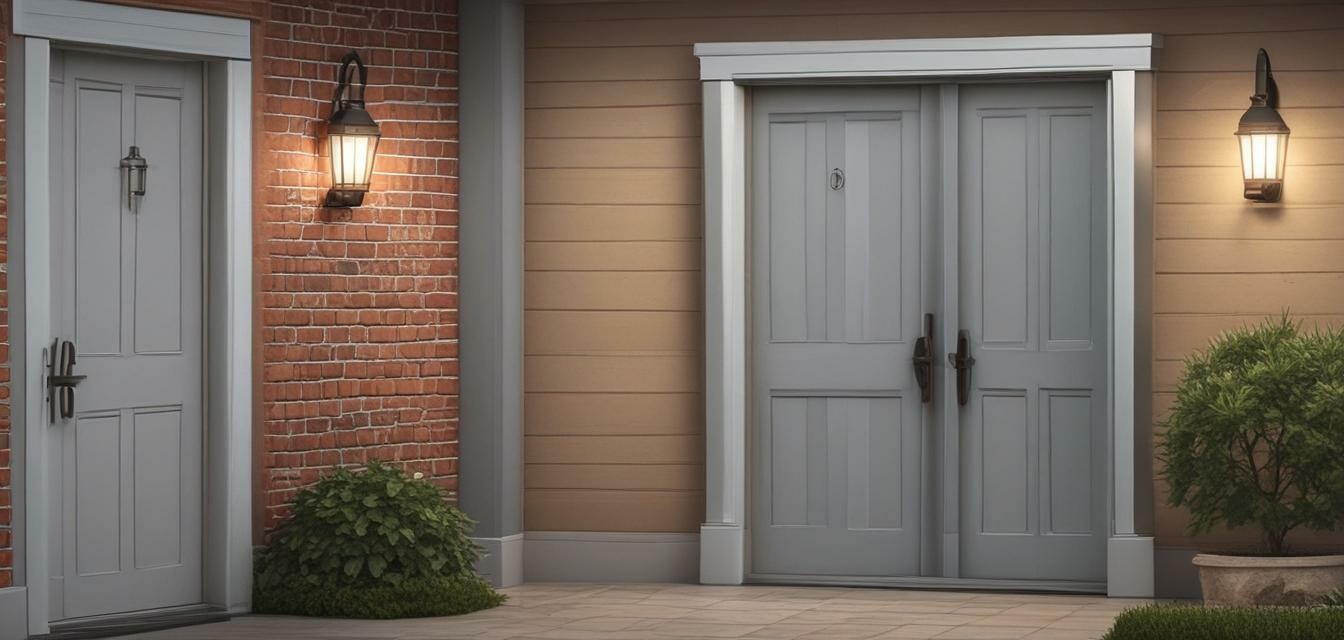
Smart Home Security
Common home security mistakes to avoid
Key Takeaways
- Always ensure your doors and windows are locked when you leave.
- Install adequate lighting around your home, especially entry points.
- Regularly update your security system and review its functionality.
- Don’t share your security codes or passwords with others.
- Consider professional installation for advanced security systems.
In today's world, home security is more important than ever. Many homeowners take steps to shield their property, yet common mistakes can undermine their efforts. In this article, we'll explore frequent home security blunders that individuals often make and how to bypass them for improved protection.
1. Neglecting to lock doors and windows
It may sound simple, but leaving doors and windows unlocked is a prevalent mistake. Let's examine why it’s critical to keep these entry points secured:
- Most burglaries are opportunistic; unlocked doors and windows present easy access.
- Secure locks are your first line of defense against unauthorized entry.
Tips to avoid this mistake:
- Always double-check that all doors and windows are locked before leaving.
- Consider using smart locks that can enhance your security and allow for remote monitoring.
- Utilize window locks and consider adding security bars or screens for vulnerable windows.
2. Insufficient lighting around your home
Poor lighting can make your property an easy target for intruders. Effective lighting is essential for deterrence.
Tips for better outdoor lighting:
- Install motion-sensor lights near entrances and driveways.
- Use solar-powered lights along pathways to increase visibility.
- Ensure all entry points are well-lit with adequate illumination.
3. Outdated security systems
Relying on older security systems can leave you vulnerable. Regular updates and checks are crucial.
Signs your security system needs an upgrade:
- Frequent malfunctions or false alarms.
- Incompatibility with current smart home technology.
- Lack of monitoring options for emergency services.
How to enhance your security system:
- Research the latest security systems that can be integrated into smart home technology.
- Consider professional monitoring for quicker response times in emergencies.
- Regularly review and test your system to ensure it's functional.
4. Over-sharing security information
Sharing your security codes or passwords might seem harmless, but this can expose your home to risks.
Best practices for sharing access:
- Limit sharing codes to trusted individuals only.
- Change alarm codes and passwords regularly.
- Use secure channels to share sensitive information.
5. Ignoring home automation features
Home automation can greatly enhance your security, but many homeowners overlook these functionalities.
Key features to consider:
- Remote access to your security cameras and alarm systems.
- Smart doorbells that offer video surveillance and communication.
- Automated lighting systems that mimic your schedule.
6. Not consulting professionals
While DIY solutions can be appealing, it's often beneficial to consult professionals for advanced home security systems.
Reasons to seek expert advice:
- Professionals can assess your property's vulnerabilities.
- They can recommend and install the most effective security solutions.
- Professional monitoring services provide peace of mind.
Conclusion
Avoiding these common home security mistakes can significantly improve your protection against potential threats. Ensuring that you take preventive measures will give you peace of mind and safeguard your home effectively. By following the advice detailed in this article, you can enhance your home security and reduce the risk of burglary. For more insightful tips and recommendations on security systems, explore our Home Security Tips section.
Pros
- Increased safety for homeowners and their families.
- Peace of mind knowing that your property is secure.
- Potentially lower insurance premiums due to enhanced security.
Cons
- Upfront costs associated with security upgrades.
- Time required for installation and regular system checks.
- Potential privacy concerns with certain security systems.